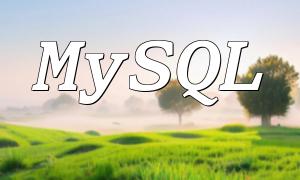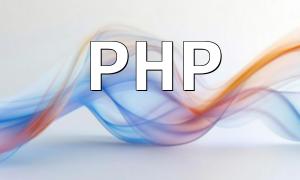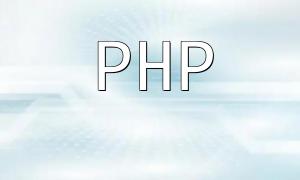PHP, as a powerful server-side scripting language, has become one of the top choices for web and application development. Due to its simplicity, flexibility, and good compatibility with various databases, PHP has always been a popular choice for developers. However, efficiently building powerful and stable websites and applications using PHP is not an easy task. This article will introduce some methods and tips to help developers better leverage PHP for development.
In PHP development, a well-organized code structure is key to ensuring a smooth project. Clear code organization not only improves readability but also enhances maintainability. Adopting suitable design patterns and frameworks can significantly simplify the development process. Common PHP frameworks like Laravel and Symfony use the MVC (Model-View-Controller) design pattern, which helps developers achieve efficient and organized code structure.
PHP has a rich set of built-in functions and libraries, covering areas such as string manipulation, file operations, and database access. Mastering these built-in features allows developers to implement requirements more efficiently and boost code performance. By properly utilizing these functions, developers can reduce repetitive tasks and enhance development speed.
Performance optimization is a critical aspect of PHP development, especially when handling large amounts of data and concurrent requests. Performance bottlenecks can affect system stability and user experience. To overcome these issues, several approaches can be taken: using caching technologies (such as Memcached, Redis) to cache database query results, utilizing OPcache to cache PHP bytecode, and optimizing database queries with proper indexing. These methods can significantly improve data processing speed and reduce server load.
The security of PHP websites and applications is crucial, and preventing potential attacks is an essential part of development. Common attacks include SQL injection, cross-site scripting (XSS), and more. Developers can enhance system security by validating inputs, filtering outputs, and using prepared statements to prevent SQL injection. Additionally, regularly updating PHP versions and third-party libraries is an important measure to patch known vulnerabilities.
PHP has a large and active open-source community. Developers can contribute to open-source projects or refer to other open-source codebases to learn advanced technologies and development practices. This not only helps avoid reinventing the wheel but also keeps developers in sync with industry trends. By learning from open-source projects, developers can enhance their skills and save development time.
Efficiently utilizing PHP for website and application development requires attention to code organization, mastering PHP's built-in features, performance optimization, improving security, and leveraging open-source community resources. By continually learning and practicing, developers can master these techniques and build more efficient and stable systems, providing better user experiences.









